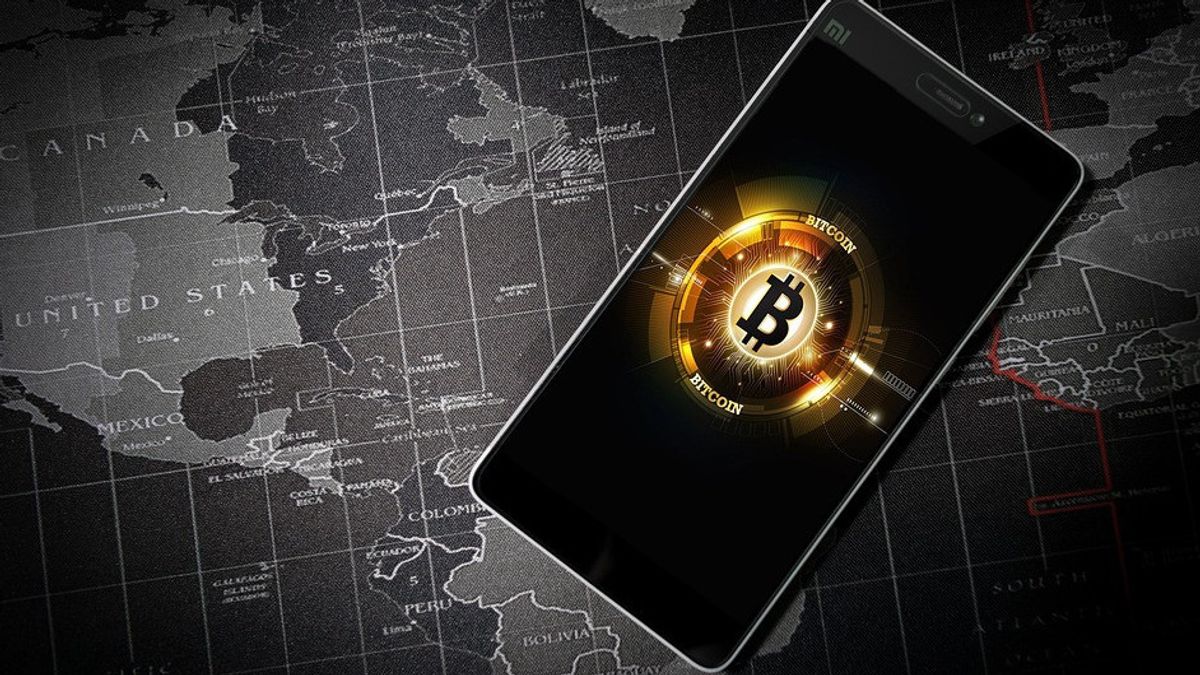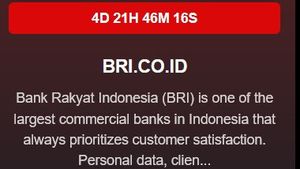JAKARTA – The price of Bitcoin has soared since the Russian invasion of Ukraine, last week. This surge is supported by the attitude of people in these countries who want to store and move money in anonymous and decentralized cryptocurrencies.
Bitcoin trading denominated in the Russian ruble went into overdrive when the invasion began on Thursday, February 24, with daily volume gains up 259% from the previous day. Total trade came to 1.3 billion rubles (Rp 172.2 billion), according to data from CryptoCompare.
Meanwhile in Ukraine, crypto exchange Kuna showed its daily trading volume more than tripled to 150 million hryvnia (Rp 71.8 billion).
Bea O'Carroll, managing director at Radkl, a digital asset investment firm, said the war and Western sanctions against Russia have increased the trend of using bitcoin to transfer value.
"Basically, having a currency that is not controlled by the government, that is not affected by emergency measures ... is very attractive," O'Carroll said, as quoted by Reuters. "Maybe that's how Russia moves its value. Similarly, on the other hand, there's 'this is how people get value for Ukraine'."
In the five days since Russia invaded Ukraine on February 24, Bitcoin's price has risen 13%, while the often imitated US S&P 500 stock index is up about 2% and traditional safe investments such as gold have tended to flatten after rising as much as 3.5. % on the day of invasion.
Coinglass data also shows that on the day of the Russian attack last week, around 300 million US dollars in bitcoin short positions were liquidated. Meanwhile Singapore-based QCP Capital said "a large part" of its long leveraged positions had also been taken.
In addition to being largely anonymous, crypto holdings and transactions are often stored in wallets on decentralized platforms that can be accessed from anywhere. This makes investing in Bitcoin or other cryptocurrencies more practical and easier.
“Bitcoin could be a potential haven for Russian oligarchs evading sanctions because there would be no censorship on the Bitcoin network and cryptocurrency transactions,” said Ipek Ozkardeskaya, senior analyst at Swissquote Bank.
“Current cryptocurrencies can act as a strong store of value for most holdings that do not need to be liquid,” he added.
For cryptocurrency enthusiasts, however, the fact that such holdings can offer a route around sanctions can be a double-edged sword.
“This could lead to regulation from NATO countries against crypto use, but the flip side is that there may be wider adoption in places with geopolitical turmoil,” said Katie Talati, head of research at digital asset manager Arca.
Ukraine is also quickly discovering opportunities in the reach and anonymity of the crypto world. Deputy Prime Minister Mykhailo Fedorov tweeted addresses of bitcoin and ether wallets, alongside the chant: "Stand with the Ukrainian people. Now accept cryptocurrency donations."
The Fedorov government and Ukrainian non-governmental organizations raised more than $22 million in cryptocurrencies following the appeal, according to blockchain analytics firm Elliptic.
While bitcoin may emerge as the currency of choice in an area of geopolitical risk. However, market participants warned there were differing views on whether bitcoin could more broadly become a "safe-haven" asset, a form of digital gold.
For Zach Friedman, co-founder of cryptocurrency broker Secure Digital Markets, the post-invasion gains of bitcoin served to enforce the "narrative around the storage of bitcoin's value during turbulent times".
stablecoin
Elsewhere, money is also flowing into "stablecoins", which are pegged to traditional assets such as the US dollar. As of Friday, February 25, stablecoin transactions made up more than 83% of the total 24-hour trading volume of the cryptocurrency market according to CoinMarketCap.
USD Tether, the largest stablecoin saw its market cap rise to an all-time high of nearly $80 billion, while the gold-backed cryptocurrency PAX Gold added nearly $100 million to its market cap in two days.
The English, Chinese, Japanese, Arabic, and French versions are automatically generated by the AI. So there may still be inaccuracies in translating, please always see Indonesian as our main language. (system supported by DigitalSiber.id)













